Mary:
Hi, I'm Mary, and I'm 14 years old.
Jack:
Hi, I'm Jack, and I'm 14.
MaryWe're both from Oxford. What jobs do these items reminds you of?
JackSo, I think this one's like a barrister or a lawyer or something,
Mary:
Doctor or something like that.
Jack:
This could be a cook.
Jocelyn:
Hello. Hi. Who do you think wears this? A professor? It’s a professor, yeah. And I wonder what sort of person might wear this? I'm Professor Jocelyn Bell Burnell. I'm an astrophysicist and I discovered radio pulsars. I now work in Oxford University, and the objects you've been looking at are part of a research experiment. You might already know about racism, sexism, different forms of prejudice. I'm going to talk about unconscious bias, the judgments we make about others without even realising we do it. It can have a huge effect on people's lives.
Mary:
So, what is unconscious bias?
Jocelyn:
Unconscious bias is something that we almost inevitably do. For instance, when you looked at that yellow hard hat, you probably assumed it was worn by a man. And mostly they are. But there are women working in the building trades as well. And most often when we think of a judge, we think of a man. But there are women judges, some very good ones too, but not so many as the men. Where women are in a minority, we tend to assume the role means a man. So, it's an oversimplification of what's actually happening in life.
Jack:
Have you been affected in your career by any unconscious bias?
Jocelyn:
A lot, actually. Yes. I was a science undergraduate at university. I was studying physics. In physics, in general, there haven't been so many women, and there have certainly been occasions where people assumed I was a secretary. At that time. It was unusual to find women working, except maybe for a few years before they got married. So, yeah, there was a lot of unconscious bias around.
Mary:
Could you tell us about your discovery of radio pulsars?
Jocelyn:
I've done a physics degree. I've decided I wanted to be a radio astronomer, somebody who studies the sky, the stars and the galaxies through the radio waves that they give out. And I spotted an anomaly at a level of about ten parts in 1,000,000 and followed this up with guidance from my supervisor. And it turned out to be a radio source that went bleep bleep bleep bleep bleep gave out a string of pulses, which we know called a pulsar.
Jack:
What did those pulses mean?
Jocelyn:
The pulses were coming from a star that swept to beam of radio waves around the sky, a bit like the way a lighthouse sweeps an optical beam, a beam of light round the horizon. I found the first four of these. So that was exciting.
Mary:
Did you get the recognition that this amazing discovery deserved?
Jocelyn:
In the long term, yes, undoubtedly. In the short term, journalists unconscious bias kicked in. Typically, following the discovery, we were interviewed by journalists. There'd be my male supervisor, Tony and myself, and they'd ask Tony the scientific questions, you know, what's the significance of this discovery? Blah blah blah. And then they turned to me for what they called the human interest. What were my waist, hip and bust measurements? How many boyfriends did I have? They didn't see me as a scientist, and that was very hard to deal with. Over time, the situation has improved enormously, and I've had a load of awards. It's just been great fun.
Mary:
The experiment was actually really interesting. I didn't know I had any of these previously formed opinions and how gender related to just some objects, you know, just like a wig or just a hat.
Jack:
Today was inspirational. From my experiences meeting Jocelyn, I will think a lot more about unconscious bias going into the future. She's been there, she knows what it's like, and she knows how we can sort of improve.
Professor and astrophysicist Jocelyn Bell Burnell talks to two students about why unconscious bias matters.
After setting the students a challenge of guessing what jobs certain items might relate to and observing whether they associate the roles with a man or woman, Jocelyn describes her experiences of unconscious bias during her career.
During her years of study in the field of physics, a largely male-dominated profession, Jocelyn was often assumed to be a secretary.
After her groundbreaking work around pulsars gained praise, journalists often asked her male supervisor the serious scientific questions whilst she would be asked the human interest questions around her personal life.
Jocelyn says that over time, the situation has improved dramatically and her work has been recognised with many awards.
This short film is from the BBC Teach series Lessons with Leaders.
Teacher Notes
Things to check your students know:
- What ‘bias’ and ‘unconscious bias’ is.
Possible talking points:
Psychology/ PSHE:
- Can you think of a time when you have become aware of having a bias, or experienced bias? This could be based on gender or any other characteristic. What factors do you think might have influenced your bias? What could you do to try and overcome this?
- Have you ever spotted someone else applying unconscious bias to a situation? Did you stop them? Could you have? How?
- How might it feel to experience bias like Jocelyn did? How can we helpfully point out gender bias to improve the situation without creating conflict?
Careers:
- What careers are perceived as being typically ‘female’ and what careers are perceived as being typically ‘male’? Would you be put off from entering a career as a result of this?
- Jocelyn completed a physics degree before deciding she wanted to become a radio astronomer. How does her degree relate to her chosen career? What other career choices would have been available to Jocelyn with a physics degree?
- Why might a degree be helpful for those wishing to become scientists? Is it necessary?
Follow on tasks - You could ask students to:
- PSHE/ Psychology/ Life Skills: conduct their own experiment similar to Jocelyn’s in which they determine the level of gender bias in school/ a year group and develop steps to help overcome this.
- Careers: Consider how gender bias has impacted their career choices or understanding of historical inventions. They could research inventions made in the past and consider the part women played in their discovery, for example the film ‘Hidden Figures’ could be a good talking point for group discussion on both how gender bias is evident in society and how it can be overcome.
Curriculum Notes
- This short film is to help stimulate discussion on the following topics: careers in science, psychology or sociology and gender bias.
- It is relevant to subjects such as careers, psychology.
- This video is most suited to 14-16-year-old pupils across the UK.
- In England it is relevant and PSHE and citizenship.
- In Scotland it is relevant to modern studies in lessons in ‘inequality’.
- In Northern Ireland and Wales, it’s relevant to ‘Learning for Life and Work’ CCEA.

More from the series Lessons with Leaders:
Cressida Cowell - The importance of play. video
Author and illustrator Cressida Cowell talks to two students about the importance of play in unlocking your creativity.
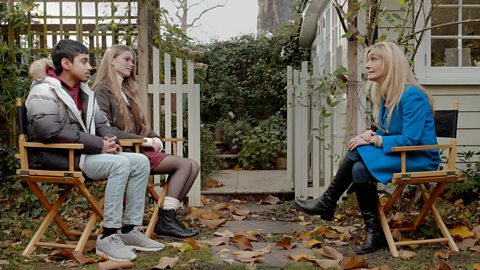
Kumi Naidoo - How to be a good activist. video
Kumi Naidoo talks about how he got involved in activism and how to be a good activist.
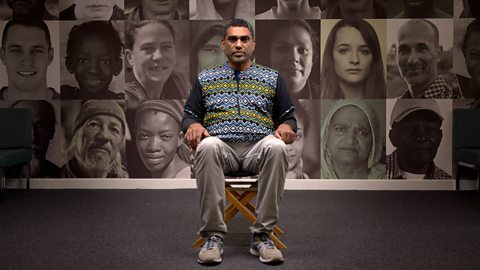
Rich Roberts - Learning from failure and luck. video
Nobel Prize winning scientist Rich Roberts talks about learning from failure and luck.
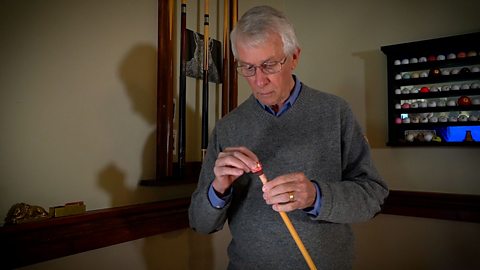
Venki Ramakrishnan - The race in science. video
Scientist Venki Ramakrishnan explains the vital role played by competition and cooperation in science.
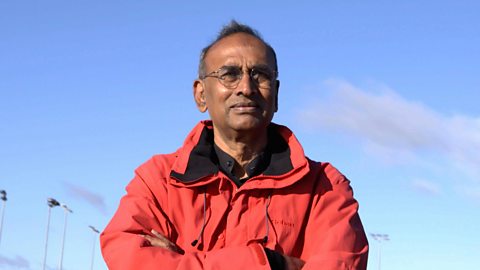
Benjamin Zephaniah - Finding your voice. video
Poet and novelist Benjamin Zephaniah talks about the importance of finding your voice.
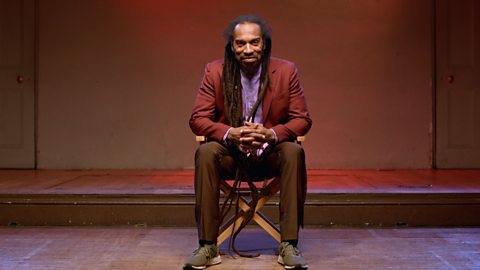
Paul Nurse: What is life? video
Biologist and Nobel Prize winner Paul Nurse talks about what biology tells us about life.

Minouche Shafik - How to be a good citizen. video
Former Deputy Governor of the Bank of England Minouche Shafik talks about why we take part in society.
